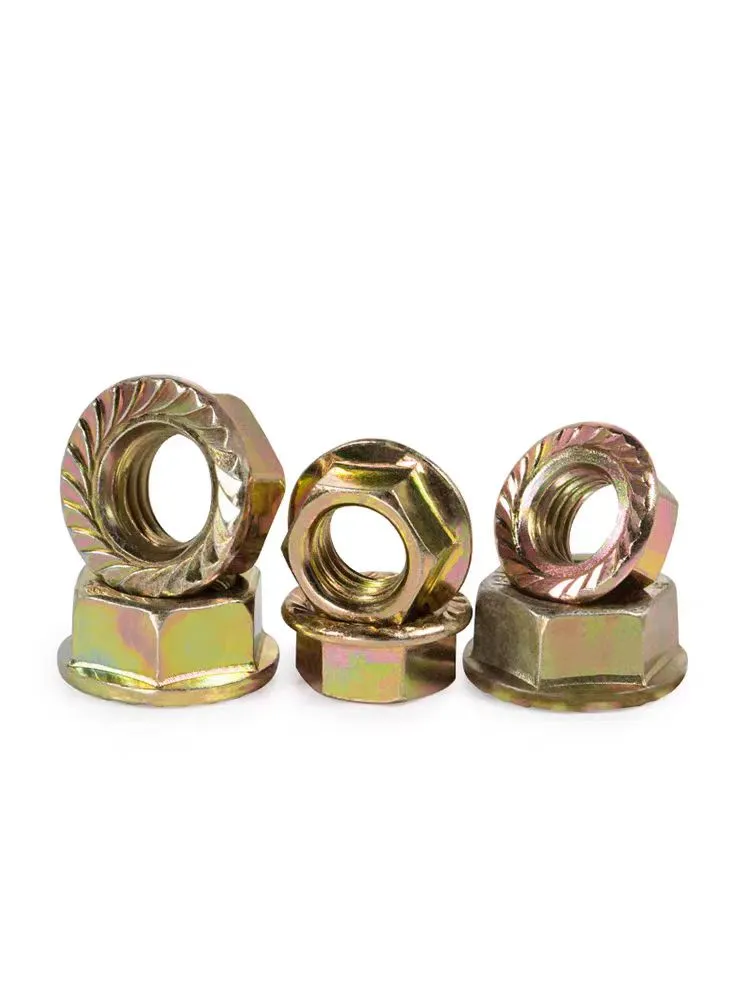

hex head self tapping screws for metal
Oct . 11, 2024 15:38 Back to list
hex head self tapping screws for metal
Hex Head Self-Tapping Screws for Metal A Comprehensive Overview
In the realm of construction and manufacturing, the choice of fasteners plays a pivotal role in the integrity and durability of assembled products. Among the various types of fasteners available, hex head self-tapping screws have gained prominence, particularly for metal applications. This article delves into the characteristics, benefits, and applications of hex head self-tapping screws, emphasizing their essential role in modern engineering.
What Are Hex Head Self-Tapping Screws?
Hex head self-tapping screws are designed with a hexagonal head that can be driven using a wrench or socket, providing a secure grip and efficient torque application. These screws are equipped with a sharp, pointed tip and threads that allow them to penetrate and tap into the base material—typically metal—without the need for a pre-drilled hole. This feature not only streamlines the installation process but also enhances the overall strength of the connection.
Key Characteristics
1. Material Composition Hex head self-tapping screws are often manufactured from high-strength materials like carbon steel or stainless steel. The choice of material is crucial as it affects corrosion resistance, strength, and thermal stability.
2. Thread Design The thread design of these screws is engineered for optimal engagement with metal surfaces. The threads can vary in pitch and depth, tailored for specific applications or metal thicknesses.
3. Hex Head Design The hexagonal shape of the head allows for better torque application compared to slotted or Phillips heads, minimizing the risk of stripping. This characteristic is particularly advantageous in heavy-duty applications where high torque is required.
Benefits of Using Hex Head Self-Tapping Screws
hex head self tapping screws for metal

- Efficiency The self-tapping feature eliminates the need for a pilot hole, significantly speeding up the assembly process. This efficiency is particularly beneficial in large-scale manufacturing operations.
- Versatility These screws can be used in a variety of metal materials, including aluminum, steel, and other alloys. Their adaptable nature makes them ideal for diverse industries, ranging from automotive to construction.
- Strong Joint Formation The ability to cut into the metal while creating threads ensures a strong mechanical bond that can withstand heavy loads and adverse conditions. This durability extends the lifespan of the assembled structures.
- Cost-Effective Solutions By reducing the need for additional drilling tools or equipment, hex head self-tapping screws can lower labor costs and time, making them an economical choice for many projects.
Applications
Hex head self-tapping screws are widely used across multiple sectors. In the construction industry, they are often employed in securing metal studs, attaching brackets, and joining structural components. The automotive industry relies on these screws for fastening body panels, engine components, and various assemblies, while manufacturers of appliances, furniture, and electronic devices utilize them for robust assembly solutions.
Conclusion
Hex head self-tapping screws designed for metal applications are essential tools in modern construction and manufacturing. Their unique characteristics, significant benefits, and diverse applications make them a preferred choice for engineers and builders alike. As industries continue to evolve and demand innovative solutions, the importance of reliable fasteners like hex head self-tapping screws will only grow, cementing their status as a staple in assembly and construction practices. In an age where efficiency and durability are paramount, exploring the advantages of these screws is not only wise but necessary for optimal project outcomes.
Latest news
-
Hot Dip Galvanized Bolts-About LongZe|High Strength, Corrosion Resistance
NewsJul.30,2025
-
High-Strength Hot Dip Galvanized Bolts - Hebei Longze | Corrosion Resistance, Customization
NewsJul.30,2025
-
Hot Dip Galvanized Bolts-Hebei Longze|Corrosion Resistance&High Strength
NewsJul.30,2025
-
High-Strength Hot-Dip Galvanized Bolts-Hebei Longze|Corrosion Resistance&High Strength
NewsJul.30,2025
-
Hot Dip Galvanized Bolts-Hebei Longze|Corrosion Resistance&High Strength
NewsJul.30,2025
-
Hot Dip Galvanized Bolts - Hebei Longze | Corrosion Resistance, High Strength
NewsJul.30,2025

